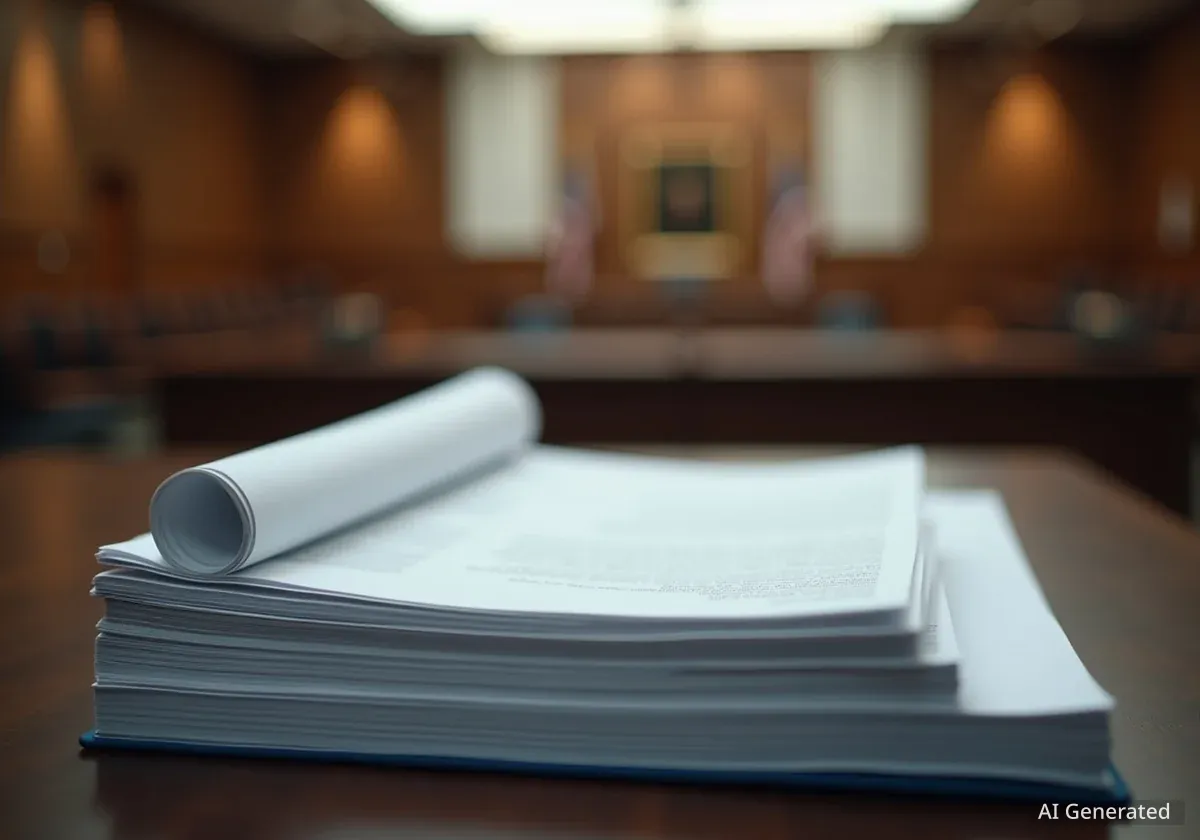A federal court has significantly bolstered the case for a group of authors, including George R.R. Martin, in their copyright infringement lawsuit against OpenAI. The court's decision allows two new legal theories to proceed, increasing the pressure on the AI giant and potentially paving the way for a substantial settlement.
The ruling broadens the scope of the legal challenge beyond the initial argument over training AI models on copyrighted books. It now includes separate claims related to the alleged use of pirated books and the nature of the content generated by ChatGPT, a development that could have far-reaching implications for the future of generative AI.
Key Takeaways
- A federal judge has allowed authors to advance new copyright infringement theories against OpenAI.
- The lawsuit now includes claims that illegally downloading books from "shadow libraries" constitutes a distinct act of infringement.
- The court also found that summaries and sequels generated by ChatGPT could be considered "substantially similar" to original works, creating another path for authors to claim infringement.
- This decision strengthens the authors' position and increases the likelihood of a significant settlement before the case reaches trial.
A Multi-Front Legal Challenge
The legal battle between prominent authors and OpenAI has evolved into a complex, multi-pronged assault on the company's practices. Initially, like many similar lawsuits, the case centered on a single core argument: that training large language models (LLMs) on copyrighted books without permission constitutes copyright infringement.
However, the legal strategy has since expanded. The plaintiffs, represented by a legal team that has seen success in similar cases, are now pursuing three distinct theories of infringement. Each theory represents a separate avenue through which they can seek damages, and they only need to succeed on one to win their case.
The Three Pillars of the Authors' Case
The lawsuit against OpenAI now rests on these key arguments:
- Training Data Infringement: The original claim that using copyrighted books to train AI models is a direct violation of copyright.
- Acquisition Infringement: A newer theory that the act of illegally downloading books from pirated sources, or "shadow libraries," is a separate infringement, regardless of whether the books were used for training.
- Output Infringement: The argument that text generated by ChatGPT, such as detailed summaries or outlines for sequels, is substantially similar to the original copyrighted works and thus constitutes an infringing derivative work.
The Piracy Question Takes Center Stage
One of the most significant developments in the case is the court's validation of the "shadow library" argument. U.S. District Judge Sidney Stein ruled that the plaintiffs could separate their claims, treating the alleged illegal downloading of books as a standalone act of copyright infringement.
OpenAI had contested this move, arguing it was an improper addition to the case. However, the court disagreed. "The fact that many of the allegations in the prior class complaints suggested that the ultimate purpose of the reproduction was to train OpenAI’s LLMs is not dispositive," Judge Stein wrote in the decision.
This distinction is critical. It means that even if OpenAI were to successfully argue that using the books for training falls under "fair use," the authors could still win substantial damages if they can prove the company sourced its material from pirated collections. Proving the initial act of illegal acquisition is often more straightforward than litigating the complex nuances of fair use in the context of AI training.
High Stakes for Infringement
Under U.S. copyright law, statutory damages can reach up to $150,000 per infringed work. With a vast number of books potentially involved, this creates immense financial risk for OpenAI, even if only one of the authors' legal theories prevails.
When AI Output Mirrors the Original
Perhaps the most surprising part of the recent ruling was the court's stance on ChatGPT's generated text. Judge Stein concluded that a jury could reasonably find that the AI's outputs infringe upon the authors' original works.
The court specifically referenced examples related to George R.R. Martin's A Song of Ice and Fire series. When prompted, ChatGPT produced highly detailed summaries of the books' settings, plots, and characters.
A reader could "easily conclude that this detailed summary is substantially similar" to the book because it "conveys the overall tone and feel of the original work by parroting the plot, characters and themes of the original," the court stated.
The analysis went further, examining AI-generated outlines for potential sequels to Martin's books. One example involved ChatGPT creating an alternative plot for the series. The court found that such outputs could be seen as infringing on Martin's exclusive right to create derivative works based on his universe.
While the judge emphasized that this was not a final ruling on the matter of fair use, allowing this argument to proceed to a potential trial is a major victory for the authors. It directly challenges the idea that AI-generated content is inherently transformative and non-infringing.
The Road Ahead
With these new legal avenues open, the scales appear to have tipped in the authors' favor. The ruling significantly increases the legal and financial risks for OpenAI, making a pre-trial settlement a more attractive option.
A similar case involving author Andrea Bartz against AI company Anthropic provides a compelling precedent. In that lawsuit, the court also allowed a theory related to the illegal downloading of books to proceed, even while leaning in the company's favor on fair use. Anthropic subsequently agreed to a settlement, reportedly valued at $1.5 billion. Notably, the lead lawyer in that case is also representing George R.R. Martin and the other authors in the suit against OpenAI.
The next major step in the litigation will be summary judgment, where the court will decide which specific claims have enough evidence to be presented to a jury. This phase will provide a much clearer picture of the case's ultimate trajectory. For now, authors and creators are watching closely as the legal system grapples with defining the boundaries of copyright in the age of artificial intelligence.





